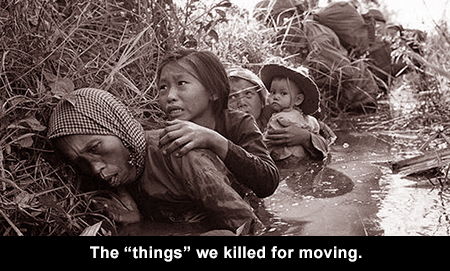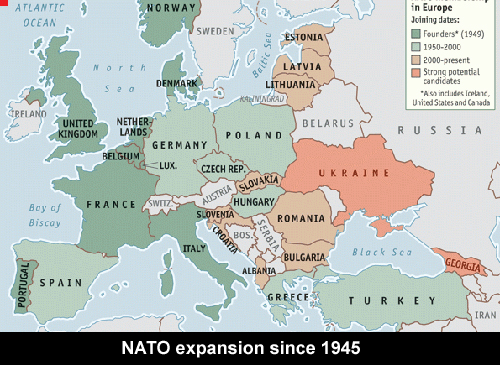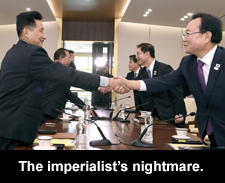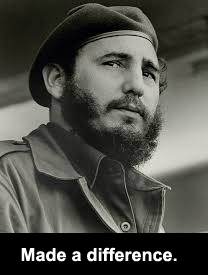Biden recently announced another $1.1 billion in arms sales to Taiwan, this on the heels of Nancy Pelosi’s bizarre-ass junket to the island / breakaway province. This, I think, is called tripling down, based mostly on a calculation common to most U.S. politicians that provoking China is a political winner, regardless of context. That may be true, but only if you’re cravenly pursuing popularity with no thought of human consequence. While that may sound particularly like Donald Trump, it also sounds like pretty much every other modern president.
We live in a time, once again, when criticism of American foreign policy is characterized as either foolishly alarmist or callously dismissive towards the victims of our official adversaries. I can’t tell you how many times I’ve been called out for not being sufficiently critical of either China or Russia. It’s not enough to say that the leadership of both states is arbitrary and rapacious. You need to cheer on the weapons as they roll off the assembly line and into the waiting hands of our Ukrainian or Taiwanese allies.
The actual grievance narrative
What gets glossed over in this toxic discourse is a fuller understanding of history and motive. What is the power behind Putin? He presents himself as the protector of his people – the strong dude who’s going to rescue them from the ravages imposed by the west. This narrative resonates with many Russians because they lived through a catastrophe in the 1990s – an economic implosion born of the “shock therapy” doctrine pushed by the United States and Europe. Many, many Russians lost their livelihoods, their security, even their lives. They also lost any lingering sense that Russia was a great nation. Into that breach walked Putin.
There’s a similar dynamic with China. Xi Jinping and his cohort seek to present a strong, non compliant nation. While China is far from being a democracy, it’s likely that the Chinese people want to think of their country as consequential. That is probably founded in China’s history over the last 100+ years, which started with decades of humiliation at the hands of Europeans (the British especially), followed by civil war and a long, bitter occupation by imperial Japan. No question but that Xi is a tremendous dick, like Putin, but their grievance narrative is based on something real, unlike that of the Republicans.
Revisionist history 2.0
It’s kind of amazing how little understood this dynamic is. The public radio show On The Media did a story about competing historical narratives regarding Hong Kong and China (thanks to Best of the Left for clipping this). What fascinated me about this was that these narratives, which were presented as mythical, all had varying elements of truth embedded in them. There was this “King of Kowloon” graffiti artist who became notorious for claiming that his family owned the Kowloon Peninsula before the British claimed it. Well, maybe. It was something like a feudal society. Then, of course, there is the tabla rasa myth of British Imperialism – the place was empty when we got here.
But then this NPR reporter talked about how China was rewriting history books again to, in effect, erase British imperialism:
Now they’re claiming that Hong Kong never was a British colony. They’re saying that when the British took over Hong Kong, there were these series of treaties, which the Chinese call unequal treaties. They say they were forced upon them by gunboat diplomacy, by violence, and they never actually agreed to any of these treaties. So sovereignty was never ceded. It’s a crazy argument when you think of all those governors and the British administration of Hong Kong to claim that it was never a colony, but it also shows you the sort of mutability of history.
Is it crazy to say that China’s sovereignty over Hong Kong was taken from them by force? Really? It was a forfeit as a result of one of Britain’s opium wars. What do you call that?
No more gunboats.
We seem to be leaning into our imperial posture. And while it’s natural to empathize with the victims of Russia and China, let’s not forget that there are people directly in the cross-hairs of our policy as well. We need to spare them some concern and intervention as well. We also need to bear in mind that major power conflict in the modern age carries with it an insupportable risk of nuclear war.
luv u,
jp




 Think it strange that the U.S. would be against a lessening of tension? Well, it’s not just a Trump thing. There’s a deep imperial institutional bias against ending that conflict, and it manifests itself in a host of different ways. Just Wednesday of this week I saw an NBC story about the North Korean woman who allegedly blew up a South Korean airliner; she is out of jail, living in exile as a defector in South Korea. The bombing was decades ago – so why did the network decide to dredge this story up now and hang it around the father of the current North Korean leader’s neck? I would say that NBC is about as close to the core of the U.S. foreign policy establishment as any institution can be. With a lot of positive stories coming out about the glimmer of North/South detente in Korea, it’s no surprise that this old chestnut would bob up to the surface.
Think it strange that the U.S. would be against a lessening of tension? Well, it’s not just a Trump thing. There’s a deep imperial institutional bias against ending that conflict, and it manifests itself in a host of different ways. Just Wednesday of this week I saw an NBC story about the North Korean woman who allegedly blew up a South Korean airliner; she is out of jail, living in exile as a defector in South Korea. The bombing was decades ago – so why did the network decide to dredge this story up now and hang it around the father of the current North Korean leader’s neck? I would say that NBC is about as close to the core of the U.S. foreign policy establishment as any institution can be. With a lot of positive stories coming out about the glimmer of North/South detente in Korea, it’s no surprise that this old chestnut would bob up to the surface. And clearly, there is a solid, institutional consensus on American foreign policy. It’s a relatively small box that contains, on one end, the Obama approach, then the center-left liberal interventionist school (Clinton, Samantha Power, etc.), followed by the center-right establishment Republicans (James Baker, Kissinger, etc.), the hot-head interventionists (McCain, Graham, Cotton), and the neocons (Wolfowitz, Perle, Feith, Elliot Abrams, etc.). In terms of blowing things up and killing people, there isn’t a lot of distance between any of these groupings, and they all share a common imperial worldview. The encouraging development for the Morning Joe crew is the notion that Trump has now put himself in that box.
And clearly, there is a solid, institutional consensus on American foreign policy. It’s a relatively small box that contains, on one end, the Obama approach, then the center-left liberal interventionist school (Clinton, Samantha Power, etc.), followed by the center-right establishment Republicans (James Baker, Kissinger, etc.), the hot-head interventionists (McCain, Graham, Cotton), and the neocons (Wolfowitz, Perle, Feith, Elliot Abrams, etc.). In terms of blowing things up and killing people, there isn’t a lot of distance between any of these groupings, and they all share a common imperial worldview. The encouraging development for the Morning Joe crew is the notion that Trump has now put himself in that box. This cannot be overstated: South Africa and some of its immediate neighbors (Namibia, Angola) would not be the nations they are today without Cuba’s intervention on their behalf in the fight against the racist Apartheid military and its allies. Whatever criticisms anyone may have about Castro’s rule and his repression of internal dissent, we have to acknowledge that the Cubans have engaged in humanitarian intervention to a degree that far surpasses anything we have done. They did so at great cost: Washington really turned the screws on Havana, making them pay dearly for their activist stance in support of independence movements overseas.
This cannot be overstated: South Africa and some of its immediate neighbors (Namibia, Angola) would not be the nations they are today without Cuba’s intervention on their behalf in the fight against the racist Apartheid military and its allies. Whatever criticisms anyone may have about Castro’s rule and his repression of internal dissent, we have to acknowledge that the Cubans have engaged in humanitarian intervention to a degree that far surpasses anything we have done. They did so at great cost: Washington really turned the screws on Havana, making them pay dearly for their activist stance in support of independence movements overseas.